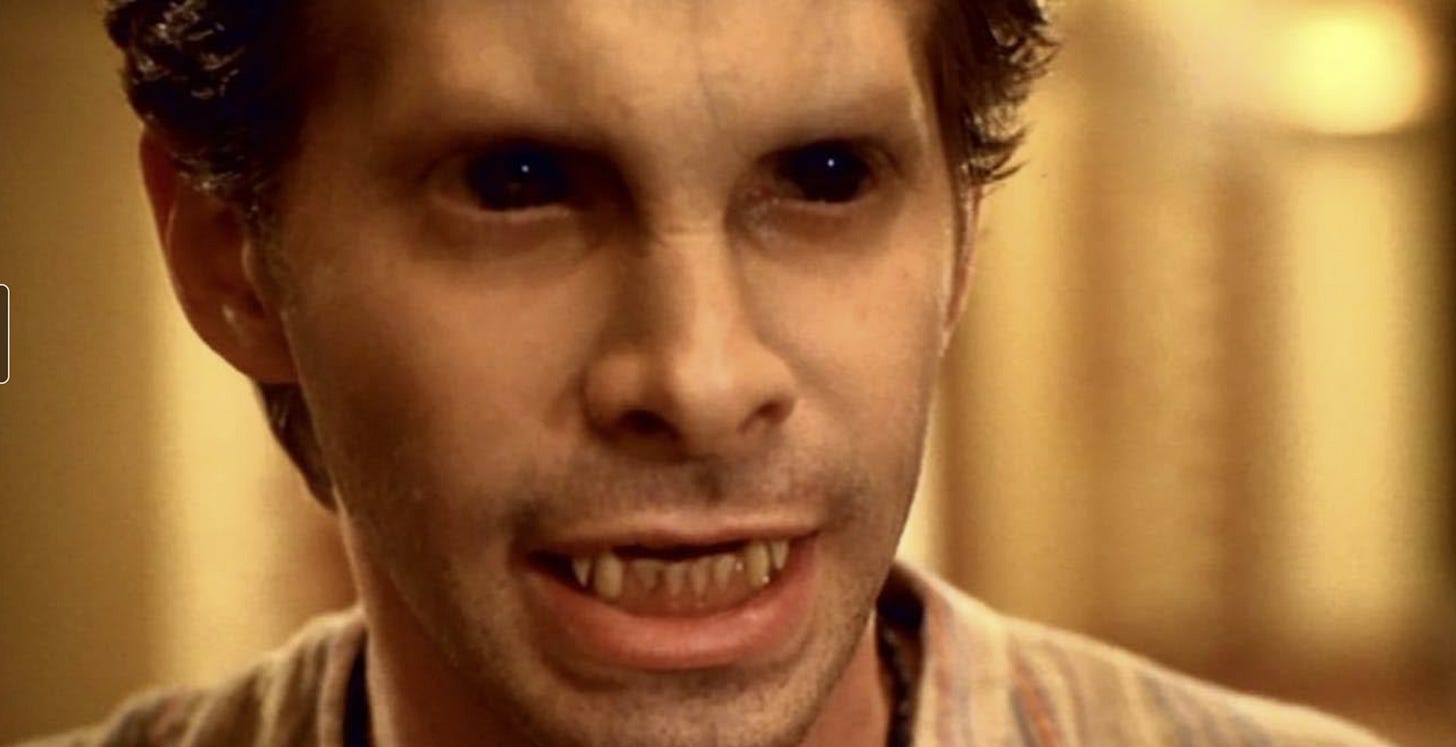buffy the vampire slayer: new moon rising
4.19 / Original air date May 2, 2000
Written: Marti Noxon
Directed: James A. Contner
All BtVS fans know that as good as Joss Whedon was at writing monsters, he was at his best when writing about human beings. When stripped back, with stories about love, friendship, passion or loss, BtVS was pretty hard to beat on any level. It was the way humanity took hits and survived that made the show so appealing.
Willow Rosenberg had a couple of what Buffy herself termed "unconventional relationships", first with Oz the Werewolf, and then with Tara. In "New Moon Rising" we see Willow at a crossroads. She's not just deciding who her boyfriend or girlfriend will be, Willow is deciding between two vastly different paths, and also two vastly different forms of power.
In season four, Willow was still close enough to the light to recognise Tara's power as the "good" and Oz's as dangerous. The Willow of season six might have viewed the whole thing quite differently. After all, her power grew and transformed over time, spurred on by the dip into black magic she made while trying to defeat Glory on her own terms.
But that Willow was in the future. Here, at the beginning of Willow and Tara's relationship, we knew Willow was capable of messing with the dark, but she always turned back. There's nothing dark about Tara. Behind the shy personality lies a strength it took two seasons to really bring out. When tested by desperate circumstances, Tara briefly stepped over the line in "Family" (season five), but we got the feeling that Tara would never again stray to dark magic.
Tara was the group's conscience. She was also its victim—of Glory's mind-meddling, of her family, of Willow herself, and finally of Warren. Of course, Tara could foresee none of this while Willow was standing in her doorway with a candle welcoming her into that world. But let's face it, if Willow Rosenberg were standing in your doorway with that come-hither expression promising to make all your dreams come true, could you say no, even if you could foresee the future?
Buffy's reaction to Willow's coming out is an interesting point in the history of the series. At the time she's freaked. Later she admits to a "momentary wiggins", which in Buffyspeak means she got over it. This idea is classic Whedon. People react and then they move on. There isn't time for Buffy to weird out over the nature of things, there are far more important things to be considered. The way that Willow's sexuality is firmly backhanded into its place is somewhat reassuring.
"New Moon Rising", for all its commando action (yawn) and other distractions, is about recognition and acceptance. Oz accepts some things about himself that he can never change. Riley finds out that his vision of things is not as clear as it once was. Buffy begins to reveal her history with Angel and why the line between human and monster can never be clear for her again.
And what is Willow but a perfect example of how lines can be blurred? True, nobody ever talks about her bisexuality. She seems to walk into the clubhouse a fully-fledged lesbian, but for this important stage of self-discovery Willow is walking the lines between two different worlds, sexually and magically speaking, and her friends just have to deal with that.
Most of all, "New Moon Rising" was the beginning between Willow and Tara. It's a very human connection, one that has nothing to do with witchcraft or demons or any of the other powers swirling around. Whedon would associate magic and sex more in future seasons, but the emotional side of Willow and Tara was initially blissfully free from that. Before Willow began to change, and before the power began to be the focus of her existence, we got to witness a relationship that was all about love.





